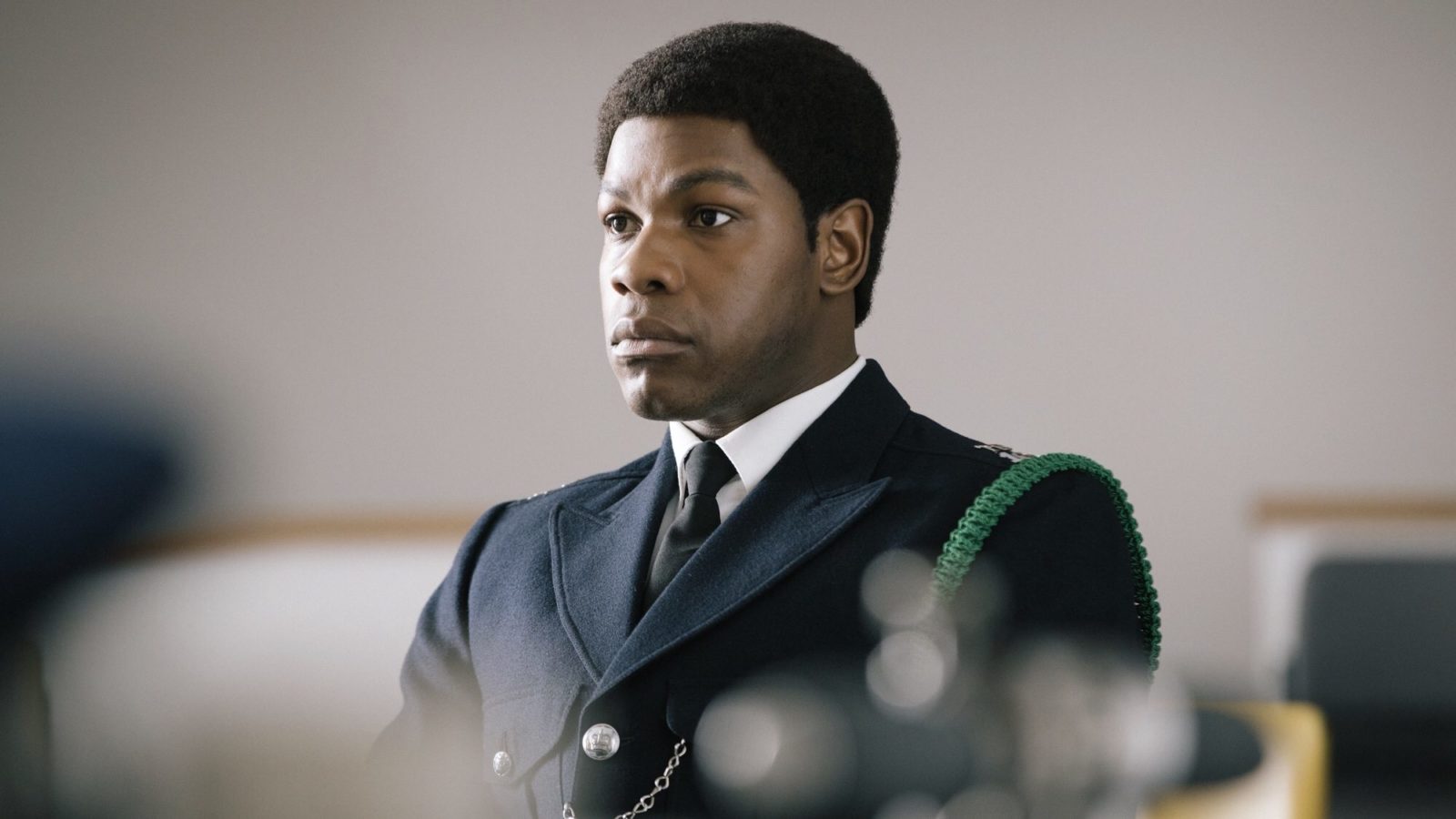by Jason Adams

And so we come to the third piece that the New York Film Festival is screening out of Steve McQueen's "Small Axe" series of five total films -- if you missed my thoughts on Lovers Rock you can read them here and if you missed my thoughts on Mangrove you can read those right here. NYFF flip-flopped the screening order on the previous chapters and Red White and Blue, today's focus, jumps us to all the way to the final chapter of the series, and you can sense that about it. It has the feel of a breath, a pause -- a looking back upon itself and taking tenative, pained stock.
As with Mangrove we're focusing again on a true story. This time it's the 1980s and John Boyega plays Leroy Logan, a young man who was on track to become a forensic scientist until his father was assaulted by a couple of racist cops...
The assault inspired Logan to join the police force and try to change the system from within. Red White and Blue tells the story of his struggle. It's riveting, yet surprisingly restrained stuff.
And like Mangrove did with courtroom drama McQueen forwards the usual tropes that we expect and yet manages to make more of them -- people scrawl racism on Logan's locker; they snicker foul stereotypes when he's within earshot. Logan makes friends with a fellow cop who's Pakastani and we watch the two of them weather the storm of bullshit in different ways, trying to support one another but also just trying to survive the onslaught. Boyega plays Logan as a righteous bundle of fury barely contained, which adds its own drama because we worry the system he's plugged himself into might channel that anger into dangerous outward ways, ones aimed towards the very community he's trying to save.
And he gets it from all directions -- that same community wants nothing to do with him, and the film, smartly, understands their suspicion and distrust. Logan's choices make a martyr of him but a self-made one, and McQueen doesn't sugarcoat the ways in which its the system itself that's the problem, ways that Logan can't seem to recognize until its gnawing down his sides. The fiercest, saddest criticism comes from Logan's own father (a deeply moving Steve Toussaint), whose downcast and damaged eyes say it all -- this favorite son's sacrifice is probably not the right one. He mucked up the message. It's a tragedy of what's undone.
As the final child of this family of five one does wish Red White and Blue was taller -- that is to say one wishes it was a little longer. Length-wise it falls between the previous two and I could've used another thirty minutes of it? But that's just because what we do get is so fantastic -- Boyega is a blaze of choked-off fire, everybody blowing him back into a pillar of shame and repressed fury; the dampening of his person is presumably the point but the denial of a proper explosion does give this chapter the feel of a piece of a whole rather than a whole unto itself, for the first time out of the three.